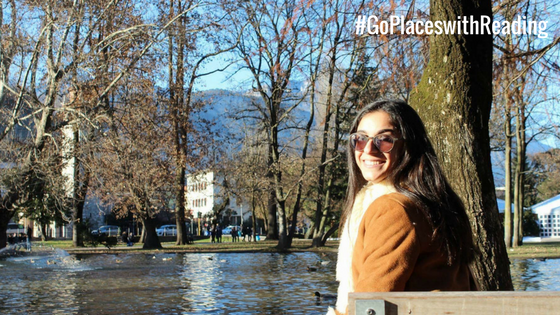
What have the Romans ever done for us? Amongst many other things, provided the opportunity for me to participate in an Erasmus+ Staff Mobility Week for libraries and learning centres at Sapienza – Università di Roma in June 2018.
The theme of the week was Libraries ⇆ Research, comprising two interconnected strands: what libraries do to support research and how libraries do research, with each attendee contributing to the programme. As well as a series of presentations, the programme for the week afforded plenty of opportunities for sharing experiences with colleagues from institutions across Europe, with participants from Slovenia, Romania, Lithuania, Sweden, Portugal, Germany and France among them.
As well as interacting with European academic library colleagues the Erasmus+ week organisers also provided opportunities for us to experience a variety of different venues across the city, reflecting the expansion of Sapienza as it continues to grow beyond its extensive purpose built campus in the San Lorenzo district of Rome. Founded as the Studium Urbis in 1303, the university moved to larger premises in downtown Rome in 1660 (now the church of Sant’Ivo alla Sapienza) before finally relocating to its present site in 1935. Designed by Marcello PIacentini, the campus footprint is apparently based upon the Vitruvian Man, with the imposing Rectorate Building at the ‘head’.
The university has a student population of c.112,500, with 3,500 academic staff and over 55 libraries, the majority serving specific faculties and departments, co-ordinated centrally by the ‘Sapienza Library System’, whilst maintaining some degree of autonomy. Over five days we heard about the various initiatives and services offered by the Library System and discussed common challenges around data curation and digitisation workflows, increasing engagement with institutional repositories, open journal systems and promoting widening access to important archival material.
The added benefit of a week like this is the opportunity to immerse yourself in the culture of another university. Highlights included an evening concert specially organised for us by Coro Musa, a choir comprising staff and students from the university; a visit to the beautiful garden of the Japanese Cultural Institute in Rome; a relaxing group dinner in a local family-run trattoria in San Lorenzo; and a visit – in our morning coffee break – to the church of San Pietro in Vincoli (just a few metres away from the Faculty of Engineering Building) to see Michelangelo’s majestic, though slightly grumpy looking, Moses. The Faculty of Engineering is actually only a few minutes’ walk away from the Colosseum and Roman Forum, and a free afternoon scheduled for the same day enabled me to spend a fascinating few hours (in the sweltering heat) trying to make sense of it all, much aided by Matthew Nicholls’ excellent Virtual Rome Open Online Course.
I have really valued the opportunity to participate in this programme through Erasmus+ scheme funding, and the support provided by both the host institution and the Study Abroad Office at Reading made the practicalities of attending this event very easy to arrange. The week long programme provided me with greater insight into the collaborative partnerships and innovations being developed at other HEIs across Europe, as well as the reassurance that, in many areas, we are all offering similar services and support for researchers to meet current and future needs. There was also a collective recognition that we are also facing many common challenges. In general, library professionals have a willingness to openly share good practice and innovation and my week spent at Sapienza demonstrated this without exception. I now intend to follow up on some of the contacts I have made, to continue these fruitful discussions, share best practice and, in partnership with my European colleagues, collaborate further on developing mutually beneficial resources and the sharing of local initiatives in support of research at our respective institutions.
Kerry Webb
Associate Director (Academic Liaison & Support), University of Reading Library



